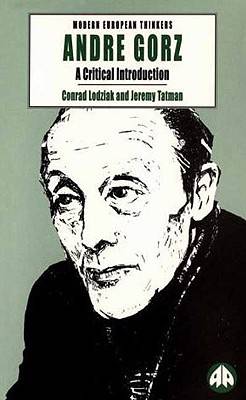
- Afhalen na 1 uur in een winkel met voorraad
- Gratis thuislevering in België vanaf € 30
- Ruim aanbod met 7 miljoen producten
- Afhalen na 1 uur in een winkel met voorraad
- Gratis thuislevering in België vanaf € 30
- Ruim aanbod met 7 miljoen producten
Zoeken
Omschrijving
Widely regarded as a major contemporary theoretician, Andre Gorz's critique of social formations offers both a direction and meaning to the current technological revolution. The absence of English texts focussing on Gorz should make this reader an accessible introduction to his work. The book traces the development of Gorz's political and philosophical theory over a period of more than four decades. His influence on European intellectual and political culture is examined and the work focuses also on Gorz's own formative influences in the development of his perspective, in particular his relationship with Satre. Gorz's accounts of the failure of the uprising in May 1968 is assessed and the book illustrates how this heralded the transiton towards the search for new movements to engage in emancipatory socialism. In particular, it addresses Gorz's growing concern with ecological matters which provided the foundation for his comtemporary writing.
Specificaties
Betrokkenen
- Auteur(s):
- Uitgeverij:
Inhoud
- Aantal bladzijden:
- 168
- Taal:
- Engels
- Reeks:
Eigenschappen
- Productcode (EAN):
- 9780745307862
- Verschijningsdatum:
- 20/01/1998
- Uitvoering:
- Hardcover
- Formaat:
- Genaaid
- Afmetingen:
- 136 mm x 216 mm
- Gewicht:
- 290 g

Alleen bij Standaard Boekhandel
+ 351 punten op je klantenkaart van Standaard Boekhandel
Beoordelingen
We publiceren alleen reviews die voldoen aan de voorwaarden voor reviews. Bekijk onze voorwaarden voor reviews.











